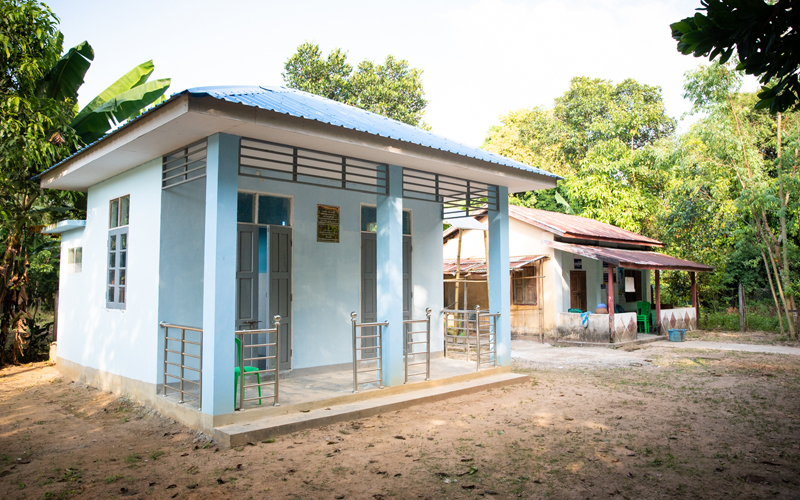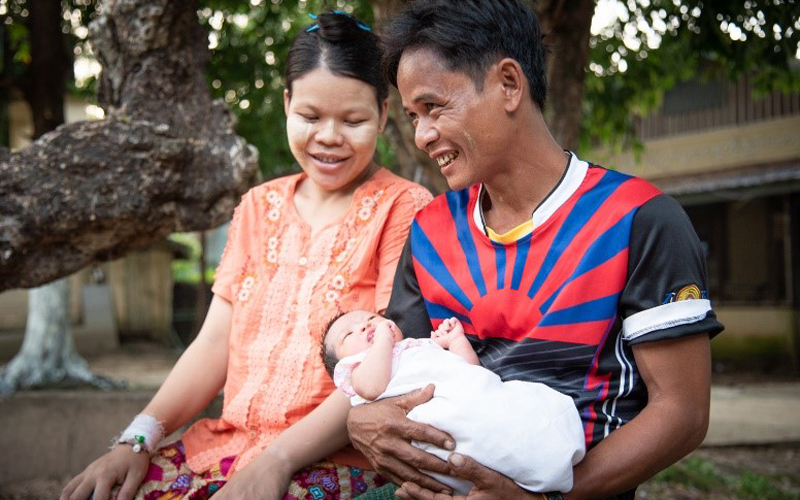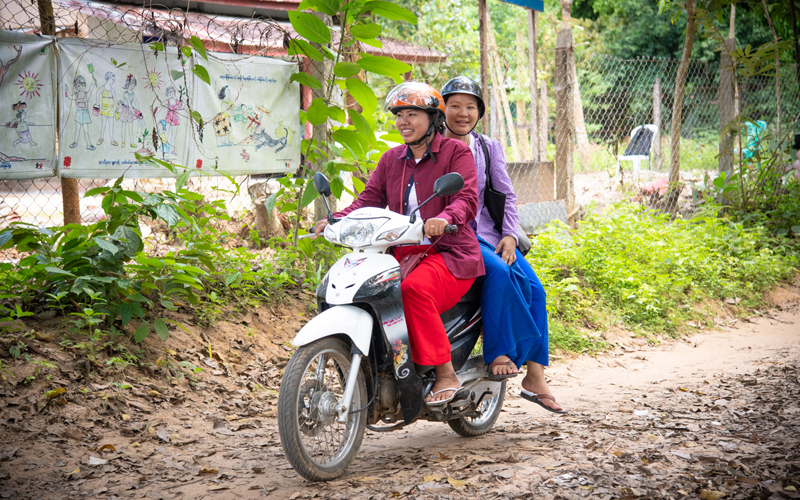“Before I came, the health centre was empty. No one was working here, it was closed.”
Ma Hla Hla, a public health supervisor in rural Myanmar is matter of fact when explaining how she got started in her current job.
“I applied for the job and got it.” After refresher training, she worked with the district office to obtain medicines to stock the centre, and let the villagers know the clinic was open again.
Her frankness is refreshing. I smile as I think about how this would play out in Canada (likely only after months of planning!).
Ma Hla Hla is determined to do what she’s been trained to do: attend to the sick people in her village and surrounding areas.
She tells me her formal title is Public Health Supervisor II, and I can see that to her patients, she is everything. She works in a part of Myanmar where a Canadian government funded program called
ENRICH - The 1000 Day Journey, is partnering with the regional government to improve access to health services for mothers and young children.
 The new birthing centre built with ENRICH support, with the refurbished health sub-centre in the background. Photo by Paul Bettings
The new birthing centre built with ENRICH support, with the refurbished health sub-centre in the background. Photo by Paul Bettings
Support from ENRICH has allowed for the refurbishing of the local health centre, provided monthly supplemental training to health staff, and the building of a birthing centre on site. There are classes for mothers about nutrition and hygiene, and training for husbands and fathers.
“ENRICH provides continuous medical education – we learn about sanitation, vaccinations, communicable diseases, and more. Then we take our training, and we replicate it to the community.
This training is important because we are living in a remote village, and it’s important to stay relevant. It’s our only chance to keep up on important changes and developments.”
A special patient
One person whose life has changed thanks to Ma Hla Hla’s arrival is Zin Mar, a young mother with a four-year-old daughter.
“Zin Mar came to me earlier this year when she was two months pregnant. When I learned that this was her fourth pregnancy and she is only 25 years old with one child, I knew we needed to watch over her carefully. In fact, I was able to refer her to the hospital in nearby Thabaung town, where she was seen by a doctor every month.
Zin grew up here in this village and didn’t know that some of the traditional practices handed down to her could be harmful to her and her unborn baby. With care from me, and ENRICH training for her and her husband, she had a healthy pregnancy, and safely delivered her baby at the hospital last month.”
 Zin Mar sits with her husband Soe four days after the safe delivery of her baby girl. Photo by Paul Bettings
Zin Mar sits with her husband Soe four days after the safe delivery of her baby girl. Photo by Paul Bettings
Ma Hla Hla says many families don’t know that some traditions may be harmful to them during their pregnancies or to their babies. In Zin Mar’s previous pregnancies, she was told not to rest during the day, as it would make the baby too big for a safe delivery. Some other mothers don’t eat healthy vegetables like spinach, as there are concerns it can make them sick, and not benefit them or the baby.
This makes the role of the village health centre practitioner and the ENRICH training all the more important.
It takes a village to have a healthy village
Now, with frequent contact between Ma Hla Hla and the villagers, more families are recognizing the need for health consultation. Husbands who previously discouraged their wives from attending health education sessions are now supportive – and are even attending themselves.
 Ma Hla Hla sits on the back of a moped driven by the new midwife assigned to the village health centre, on her way to a home visit. Photo by Paul Bettings
Ma Hla Hla sits on the back of a moped driven by the new midwife assigned to the village health centre, on her way to a home visit. Photo by Paul Bettings
The education sessions allow Ma Hla Hla to monitor the growth of babies and young children and include information about good nutrition, how to keep children healthy from seasonal sicknesses, good hygiene at home and the importance of regular health visits.
Sessions for men cover how to support their wives with nutrition and care during and after pregnancies, how to care for their babies and children, and shared roles within the family.
Access to health care for all
May Zin Phyo is a midwife who has been assigned to work in the new birthing centre starting next month. It’s a clean, safe place to deliver babies, and to come for prenatal and postnatal care. She recently visited the health centre to assist with some vaccinations and started spreading the word with expectant mothers of her upcoming posting.
“A delivery room is essential,” she says, “having babies at home can be dangerous and unhygienic.”
Informed health care providers make for healthy and empowered families.